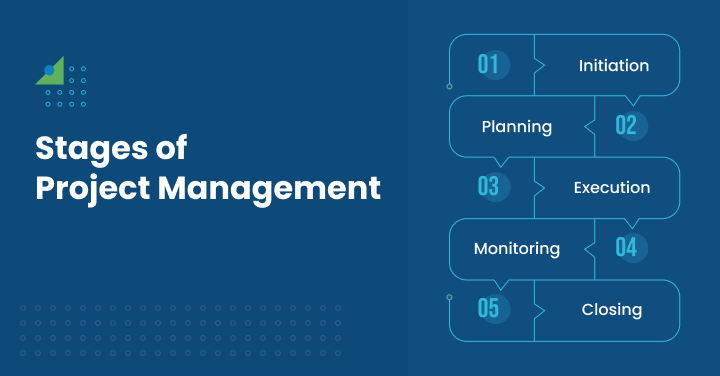Welcome to our blog on ITIL project management. In today’s digital landscape, organizations strive to deliver high-quality services while optimizing resources and maximizing customer value.
ITIL project management provides a framework that integrates service management best practices with project management principles to achieve these goals.
In this blog, we will decode ITIL project management, explore its key principles, understand its impact on project management, delve into the role of project management in ITIL, and discuss how to get started with ITIL.
So, let’s dive in and learn all you need to know about ITIL project management.
What is Project Management?
Project management is the process of using precise methods and concepts to initiate, plan, execute, and manage how new projects or changes are implemented inside an organization.
When introducing new services, project management enables teams to build on ITIL principles by outlining several essential processes.
Whether it is to build software, create new business processes, or upgrade IT infrastructure, project teams often involve personnel from diverse backgrounds and locations to collaborate to plan, execute, and manage projects.
Key project management components include:
- Scope – what new developments or changes are expected to be delivered with this project
- Time – the amount of time required for the project
- Cost – the budget that has been set aside for the project
- Quality – the standard of the project’s output
Increasing or reducing any of these components will affect the others.
For example, decreasing the time allotted to finish the project will limit the scope of work that can be done, impacting the project’s quality and cost.
Stages of Project Management
Even though many project management methodologies and strategies exist, most projects follow somewhat the below stages:
1. Initiation: The project manager determines what the project will accomplish by collaborating with the project benefactor and key stakeholders to agree on deliverables.
2. Planning: The project manager keeps track of all tasks and sets deadlines for them while defining the dependencies between each task.
3. Execution: The project manager assembles the project team and gathers and assigns the project’s resources to specified tasks.
4. Monitoring: The project manager monitors the status of the project tasks and modifies the project plans based on requirements.
5. Closing: The project manager assures that the project’s outcomes are approved by the business and then the project team is disbanded.
Why do we need project management?
Now that you know that project management is an essential practice to define, execute, and manage project tasks that satisfy customer expectations and service provider’s commitments, let’s look at why you need project management software like Deltek Ajera:
- Define the scope, timeline, and budget precisely from the outset to stay on track and maintain costs and resources within budget
- Increase your chances of accomplishing the required outcome by understanding how the project fits into your business plan
- Prioritize your company’s resources and ensure that you are using them efficiently.
- Boost productivity and improve quality of work
- Reduce the risk of project failure
- Meet the diverse demands of the project’s stakeholders
- Improve customer satisfaction by providing continuous communication on project status
Where ITSM meets Project Management
Project management can become an essential part of IT Service Management because like project management, the focus of ITSM is achieving customer satisfaction through incident resolution and closure, service request fulfillment, change implementation, and so on within the described scope, timeline, cost, and quality factors.
As you know, organizational change management is crucial to any advancement.
Because ITSM aims to provide high-quality IT services at the lowest possible cost, organizations must manage change with extreme caution to prevent jeopardizing the stability and functionality of the IT environment.
This is where project management comes in to keep unnecessary spending in check and keep up with the customer’s evolving business requirements.
How does project management in ITSM help improve IT projects?
Now that we understand what a vital role project management can play in IT service management, let’s see how project management aligned with ITSM can help improve IT service delivery.
Unified Platform
A unified platform for both IT service management and project management allows the management of all service desk processes and project-related activities from a single platform, resulting in faster turnaround times and increased efficiency among team members.
Better Planning
A unified platform allows all participating team members to easily plan their project management activities and define their objectives.
Such a platform provides better visibility of the timelines and provides an opportunity for the team members to accurately split responsibilities for all the necessary tasks.
Enhanced Flexibility
A unified tool will provide an organization the choice of service delivery projects in any preferred mode whether agile, waterfall, or hybrid. A flexible approach to complete activities will certainly help to enhance project management adoption rates within the department.
Improved Productivity
Perhaps the biggest challenge for all project managers is to deliver within time.
With a unified tool, project managers can track and monitor all project activities to keep the team’s productivity in check and complete projects within the deadline.
Boosted ROI
A unified tool offers enhanced visibility into budget and finances for project managers to make data-driven decisions.
This enhances decision-making about time sensitivity activities and contributes to the overall quality of IT services.
Conclusion
The cornerstone of ITIL project management is managing the constraints of time, cost, and scope of work while fulfilling objectives.
Similarly, ITSM processes aim to fulfill customer-stated expectations for value, capabilities, accessibility, dependability, and efficiency.
This is while ensuring agility and responsiveness in times of changing business requirements.
These frameworks together can offer a competitive edge to any organization.
If you are on the lookout for a unified platform that provides both these disciplines, then look no further than Motadata ServiceOps ITSM.
Motadata ServiceOps is an ITIL-aligned ITSM platform with a built-in project management module that can help you digitally transform your service management practices.
FAQs:
It helps streamline workflows, improve service delivery, and manage resources effectively within IT service management.
Practices include incident management, change management, and service level management to ensure smooth project operations.
ITIL frameworks ensure all project activities align with service level agreements, enhancing accountability.
ITSM platforms with modules for incident, change, and problem management are often used for ITIL-based projects.




